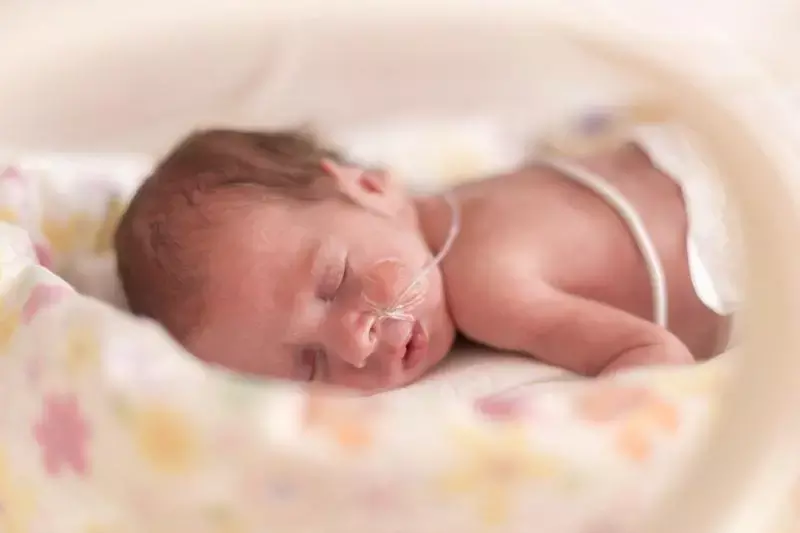- Home
- Medical news & Guidelines
- Anesthesiology
- Cardiology and CTVS
- Critical Care
- Dentistry
- Dermatology
- Diabetes and Endocrinology
- ENT
- Gastroenterology
- Medicine
- Nephrology
- Neurology
- Obstretics-Gynaecology
- Oncology
- Ophthalmology
- Orthopaedics
- Pediatrics-Neonatology
- Psychiatry
- Pulmonology
- Radiology
- Surgery
- Urology
- Laboratory Medicine
- Diet
- Nursing
- Paramedical
- Physiotherapy
- Health news
- Fact Check
- Bone Health Fact Check
- Brain Health Fact Check
- Cancer Related Fact Check
- Child Care Fact Check
- Dental and oral health fact check
- Diabetes and metabolic health fact check
- Diet and Nutrition Fact Check
- Eye and ENT Care Fact Check
- Fitness fact check
- Gut health fact check
- Heart health fact check
- Kidney health fact check
- Medical education fact check
- Men's health fact check
- Respiratory fact check
- Skin and hair care fact check
- Vaccine and Immunization fact check
- Women's health fact check
- AYUSH
- State News
- Andaman and Nicobar Islands
- Andhra Pradesh
- Arunachal Pradesh
- Assam
- Bihar
- Chandigarh
- Chattisgarh
- Dadra and Nagar Haveli
- Daman and Diu
- Delhi
- Goa
- Gujarat
- Haryana
- Himachal Pradesh
- Jammu & Kashmir
- Jharkhand
- Karnataka
- Kerala
- Ladakh
- Lakshadweep
- Madhya Pradesh
- Maharashtra
- Manipur
- Meghalaya
- Mizoram
- Nagaland
- Odisha
- Puducherry
- Punjab
- Rajasthan
- Sikkim
- Tamil Nadu
- Telangana
- Tripura
- Uttar Pradesh
- Uttrakhand
- West Bengal
- Medical Education
- Industry
Hydrocortisone does not improve risk of death or bronchopulmonary dysplasia in preterm babies: JAMA

Systemic Hydrocortisone when initiated 7 to 14 days after birth in ventilator-dependent, very preterm infants do not significantly improve the mortality rates and neurodevelopmental impairment (NDI) at 2 years' corrected age, suggests a study published in the JAMA.
Previously a randomized, double-blind, placebo-controlled trial was conducted to investigate the efficacy and safety of systemic hydrocortisone treatment started 7 to 14 days after birth in ventilator-dependent, very preterm infants. However, the trial found no significant difference in the composite primary outcome of death or bronchopulmonary dysplasia at 36 weeks' postmenstrual age. But, a preplanned exploratory analysis found a reduced risk of death at 36 weeks' postmenstrual age in favor of hydrocortisone.
A study was conducted by a group of researchers from the Netherlands to investigate the prespecified follow-up of mortality and neurodevelopmental impairment (NDI) at 2 years of corrected age.
The study was performed in 16 neonatal intensive care units in the Netherlands and Belgium from November 15, 2011, to December 23, 2016, and with a final follow-up on June 27, 2019. Infants born at a gestational age less than 30 weeks and/or with a birth weight less than 1250 g and ventilator dependent between days 7 and 14 were randomly assigned to either a 22-day course of systemic hydrocortisone or placebo.
The key outcome at 2 years corrected age was a composite of death or Neurodevelopmental impairment (NDI). At 2 years' corrected age, 356 of 371 infants (96%) were evaluated for the outcome of death or NDI.
The results of the study are as follows:
· Out of the total 95 infants died, and neurodevelopment assessment was performed in 95% (262/276) of survivors.
· Baseline characteristics showed a higher parental education level and more multiple births in the hydrocortisone group.
· Occurrence of death or NDI was 56.7% (97/171) in the hydrocortisone group and 62.7% (116/185) in the placebo group.
· The rate of death was 21.5% (39/181) in the hydrocortisone group and 29.5% (56/190) in the placebo group.
· NDI occurred in 43.9% (58/132) of the hydrocortisone group and 46.5% (60/129) of the placebo group.
· The individual NDI domains were not significantly different between the groups.
· Adjustment for preselected risk factors did not change these findings.
The researchers concluded that there was no significant difference in the composite outcome death or NDI at 2 years' corrected age in ventilated very preterm infants treated with systemic hydrocortisone initiated in the second week of life to reduce the risk of death or bronchopulmonary dysplasia. Still, the possible beneficial hydrocortisone effect on survival needs further investigation.
Reference:
Effect of Systemic Hydrocortisone Initiated 7 to 14 Days After Birth in Ventilated Preterm Infants on Mortality and Neurodevelopment at 2 Years' Corrected Age: Follow-up of a Randomized Clinical Trial by Halbmeijer N et. al published in the JAMA.
doi:10.1001/jama.2021.9380
Dr. Shravani Dali has completed her BDS from Pravara institute of medical sciences, loni. Following which she extensively worked in the healthcare sector for 2+ years. She has been actively involved in writing blogs in field of health and wellness. Currently she is pursuing her Masters of public health-health administration from Tata institute of social sciences. She can be contacted at editorial@medicaldialogues.in.
Dr Kamal Kant Kohli-MBBS, DTCD- a chest specialist with more than 30 years of practice and a flair for writing clinical articles, Dr Kamal Kant Kohli joined Medical Dialogues as a Chief Editor of Medical News. Besides writing articles, as an editor, he proofreads and verifies all the medical content published on Medical Dialogues including those coming from journals, studies,medical conferences,guidelines etc. Email: drkohli@medicaldialogues.in. Contact no. 011-43720751


